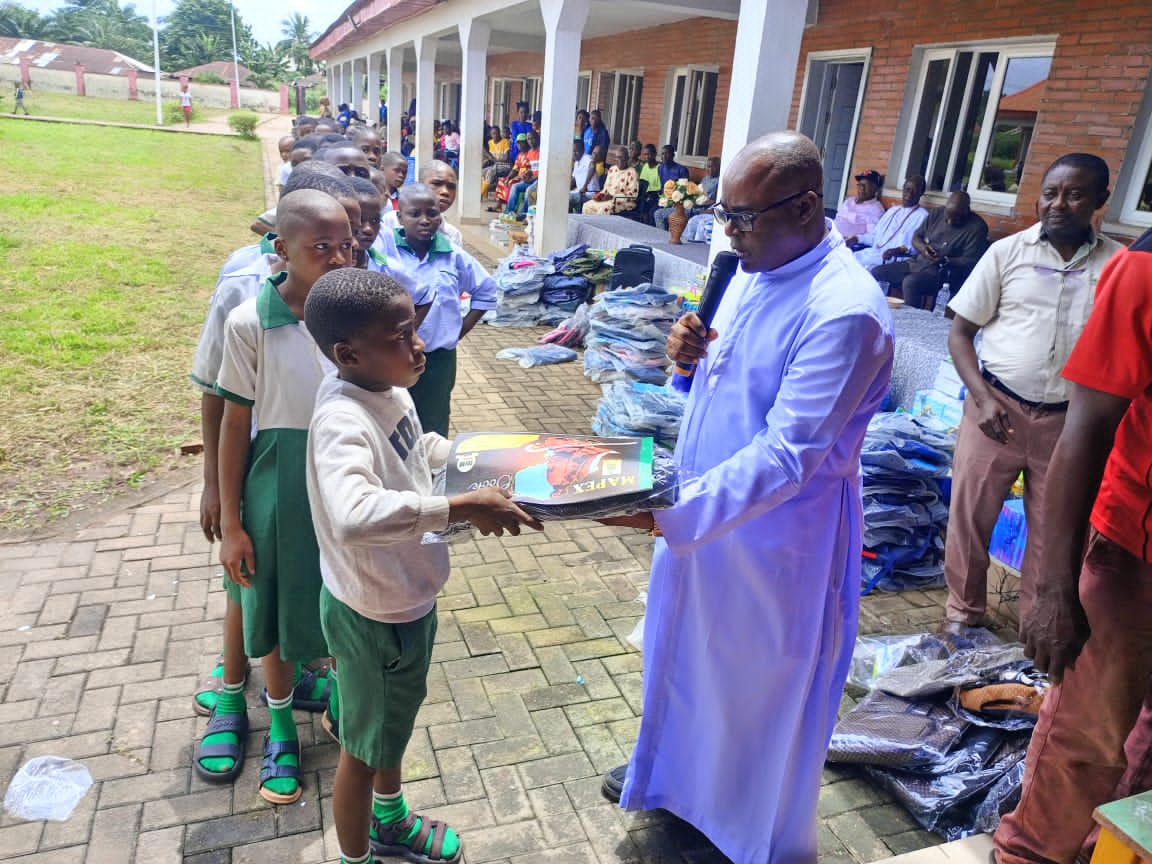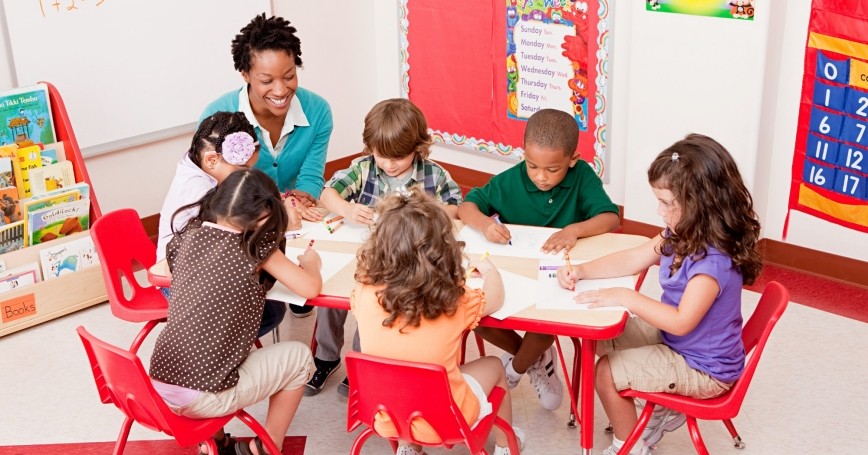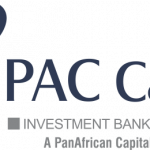Education
Education Takes a Hit From the Covid Crisis

Prior to the COVID-19 pandemic, Nigeria’s labour market had been plagued with precarity and informality. With over 30 million youths (people aged between 15 and 29 years of age) projected to enter the labour market in 2021 (which accounts for over 53% of that age group), the COVID crisis couldn’t have hit at a worse time.
The impact of COVID-19 felt on the labour market is not without precedent for Nigeria’s young workers. At the onset of the oil recession in 2016, young people entering the labour market in Nigeria faced similar hardships.
In consequence, a significant number of young Nigeria opted – or were compelled – to abandon their schooling in favour of work. At the onset of the oil recession – much like what happened at the onset of the COVID crisis – the percentage of young people in Nigeria who entered the labour market jumped by over 12%.
While working certainly can provide short-term relief during a crisis, unfortunately, this comes to the detriment of Nigeria’s already low human capital. The human capital index (or HCI), as defined by the World Bank, aims to quantify the effects that education and health have on the productivity of the next generation of workers.
Over the last four years, Nigeria’s human capital index has remained at a steady and concerning 0.35%. To offer a comparison, this score ranks Nigeria slightly below Afghanistan which comes in at 0.4 and significantly lower than leading countries such as Singapore and Australia whose scores reach above 0.9%.

With so many young Nigerians being forced – for all intents and purposes – to forego their education in exchange for immediate economic relief in precarious low-paying jobs, the country is facing an uphill battle in terms of improving working conditions, seeing a rise in salaries and a decrease in long-term unemployment. All trends point to the fact that technology is a good career path. But entering this field – much less excelling in it – requires a certain level of education that young Nigerians are being deprived of.
This causal chain can snowball quickly as the country continues to produce a relatively underqualified workforce, the better-paying jobs will continue to go elsewhere. And while the oil and gas production career path certainly has its benefits, as the oil recession of 2016 showed us, the field is vulnerable to rapid and wild fluctuations.
Whereas receiving a quality secondary education will broaden one’s scope of work options, raise their standard of living and those around them, and give them the arms to combat against potential recessions and crises, without an education, the chances of these crises having lingering effects is increased dramatically – if not outright guaranteed.
Due, in part, to the COVID-19 crisis, economists are predicting that Nigeria is headed for its worst recession in 40 years. A staggering 20 million Nigerians are expected to fall below the poverty line in 2022.
The GDP is projected to dip, as well, which would mean a significant loss in government revenue. This, in turn, would likely lead to cuts in both education and the health care system. And the snowball gets bigger and bigger and bigger.
Despite the pessimistic projections, government officials such as Shubham Chauduri, the World Bank’s County Director for Nigeria, is quick to point out that initiatives have been put in place, and we are already seeing positive results.
In 2021, The Central Bank of Nigeria (CBN) initiated a weakening of the official exchange rate for the naira. This was done in a concerted effort to try to converge the official rate with that of the NAFEX (the Nigerian Autonomous Foreign Exchange Rate).
“We acknowledge the steps to reform exchange rates,” said Shubham Chaudhuri. “But that’s one part of it.”
Other measures that have already been implemented include the introduction of a market-based pricing policy for petrol; the reduction and potential elimination of subsidies for electricity; and the adjustment of tariffs.
The projected savings these measures would mean for the government are meant to allow Nigeria to redirect its resources toward COVID-19 response and relief. The sooner we get through the crisis, the sooner those resources can be reallocated. To where, and to what end remains to be decided.
If ever we can look at this crisis and see a silver lining it would be that the dire circumstances and woeful projections are forcing officials to take practical actions – many of which have been a long time coming.
Nigeria’s farmers are a high priority in the current wave of economic reforms. Some notable examples of initiatives that have begun to be rolled out include:
- Additional funds allocated to the research of improved crop and livestock varieties
- Additional funds released to help support the infrastructure associated with farming – this includes storage, transport, and market access.
While these initiatives are likely to yield long-term benefits, there is potentially no greater long-term return on investment than that which comes from investing in education. For the time being, however – much like in prior crises – education is being made to take a back seat.
Education
AI Tutoring Startup SigIQ.ai Raises $9.5m to Democratize Elite Education

By Adedapo Adesanya
Berkeley-based startup, SigIQ.ai, has emerged from 18 months of stealth with $9.5 million in funding to transform education through personalized AI tutoring that delivers elite-level instruction at affordable cost.
SigIQ.ai’s AI tutor came into consciousness when it took India’s UPSC civil service exam last June and achieved the highest score in the exam’s history, beating 1.3 million human candidates in under 7 minutes.
The seed round was co-led by House Fund and GSV Ventures, with participation from Duolingo, General Catalyst India (Venture Highway), Peak XV Partners (formerly Sequoia India), Calibrate Ventures and angel investors, such as Mr Andy Konwinski (Co-founder, Perplexity), Mr Christian Storm (Co-founder & CTO, Turnitin), Prof. Trevor Darrell (Berkeley AI Research, UC Berkeley), Prof. Jitendra Malik (Berkeley AI Research, UC Berkeley), Prof. Srini Devadas (MIT), Prof. Sharad Malik (Princeton) and others.
According to a statement shared with Business Post, the investment will accelerate hiring top talent, enhancing AI models, and scaling platforms to educational systems worldwide.
SigIQ.ai’s technology directly addresses “Bloom’s Two-Sigma Problem” – the research finding that students receiving one-on-one tutoring perform two standard deviations better than those in traditional classrooms.
According to the company, this educational disparity has persisted for decades, with personalized tutoring remaining a luxury reserved for the privileged few. The company’s revolutionary approach shifts the cost of personalization from human labor to AI computation, making world-class instruction accessible at unprecedented scale.
“We’re at a pivotal moment in education where modern GenAI can provide a personal 1:1 tutor to every student and reduce the cost of one-on-one learning from hundreds of dollars an hour to the cost of computation,” said Dr Karttikeya Mangalam, CEO and co-founder of SigIQ.ai noted.
“We’ve started by first creating a tutor that itself can ace the very exam students are preparing for. This is a necessary step to ensure accuracy and quality in teaching delivered. And will set a new benchmark in personalized education, making the highest-quality education accessible to everyone, regardless of geography or socioeconomic status, at a fraction of the traditional cost,” he added.
The company was founded in July 2023 by Dr Karttikeya Mangalam and Professor Kurt Keutzer, a distinguished Professor in the Berkeley AI Research (BAIR) Lab.
Growing up in Muzaffarpur, Bihar – a region where educational opportunities are limited – Dr Mangalam experienced firsthand the stark divide between small-town India and elite Western academic institutions. After completing his education at IIT Kanpur and then at UC Berkeley, he founded SigIQ.ai to democratize access to world-class education globally.
In just 18 months, SigIQ.ai has launched two products with remarkable traction. PadhAI, focused on UPSC exam preparation in India, has attracted over 200,000 learners in just six months. On June 16, 2024, moments after the actual 2-hour UPSC Prelims exam had finished, PadhAI’s AI tutor solved the entire paper in a live demonstration in under 7 minutes at The Leela in Delhi. It achieved a score of 175/200 – not just the highest score in 2024, but the highest score ever achieved in UPSC prelims history, far exceeding the typical qualifying score of 100/200. This historic achievement was covered by over 70 news outlets across India, including The Hindu and The Times of India.
The company’s newer offering, EverTutor.ai, designed for GRE preparation in the US market, has already gained more than 10,000 users since launching three months ago.
“SigIQ.ai isn’t just a regular EdTech startup — they’ve built an AI system that publicly demonstrated its ability to outperform both humans and leading commercial AI models on one of the world’s most challenging exams. This redefines what’s possible in personalized education,” said Mr Jeremy Fiance, Managing Director of The House Fund.
The company said SigIQ.ai is different from other educational AI tools in its approach to personalization. Unlike basic conversational AI that offers scripted or limited interactivity, SigIQ’s systems are highly interactive, responsive to follow-up questions, and capable of personalized instruction and feedback – not just chat.
Sharing some results, it said the technology replicates the behavior of a real tutor. Students using the platform report a 30-40 per cent increase in effective study hours while improving performance by 18 per cent in the first month, with over 75% feeling more confident tackling difficult topics within just three weeks.
Looking ahead, SigIQ.ai plans to expand its reach with EverTutor, supporting more GRE takers in the upcoming spring and fall and beyond standardized tests, SigIQ.ai envisions a future where their technology transforms education broadly, creating a new era where high-quality learning isn’t limited by geography, language, or economic status.
Education
Study Reveals Scalable Path to Quality Early Learning to Every Child

A new study released by a non-profit firm, SmartStart, has revealed compelling evidence that early learning programmes run in homes and community venues could significantly boost children’s outcomes, even at scale.
The findings underscored the critical role that could be played by accessible, community-based early childhood education in breaking the cycle of educational inequality.
A team of independent researchers found that the proportion of children “on track” increased by a remarkable 20 points from 45% to 65%, while the proportion of those “falling far behind” nearly halved.
The study’s most striking revelation is the dramatic reduction in the achievement gap between children from low- and high-income households, falling from 25 points to just 6 points. This substantial narrowing represents more than a statistical triumph; it demonstrates a powerful mechanism for social mobility and educational equity.
“These findings show the transformative role that can be played by women living in low-income contexts when they are empowered to deliver early learning programmes in their homes and other community settings. The study therefore has profound implications for policymakers because it shows an affordable, scalable path to early learning for every child,” says Grace Matlhape, Chief Executive Officer of SmartStart. “Accessible, high-quality early learning programmes have the potential to break intergenerational cycles of educational disadvantage, offering children from all backgrounds a more level playing field for future academic and personal success.”
Commenting on the study, Chief Director for Foundations for Learning in the Department of Basic Education, Kulula Manona, observed that “this study shines a light on the incredible potential of our children when provided with the right developmental and learning opportunities. It also underscores the critical role of community-based early learning programmes, and the dedicated practitioners who deliver them, in bridging the early learning access gap”.
Researchers for the study, including Professor Sarah Chapman from University of Cape Town as the principal investigator, used South Africa’s Early Learning Outcomes Measure (ELOM) to track the progress of 551 children in SmartStart ELPs over an eight-month period. The results revealed that the SmartStart cohort outperformed the national Thrive by Five Index benchmark, a monitoring tool developed to track early childhood development progress in South Africa, providing robust evidence that well-designed, community-integrated early learning programmes can deliver scalable and measurable improvements in child development..
“The implications of this study demonstrate that effectiveness isn’t contingent on costly infrastructure and equipment, but on empowering practitioners with the right tools, skills and support. Simple, everyday practices, including nurturing care, lots of talk, and child-centered play, can transform outcomes for young children,” Chapman adds.
“The crucial thing about the SmartStart model is that it honours the inherent strengths of our communities. Our programmes run in homes and community venues, which means they offer an immediate and affordable solution to close the access and quality gaps for excluded children. This underscores the need for governments to establish enabling policy and funding frameworks that recognise and support these practitioners where they are,” says Matlhape.
Celebrating its tenth year of impact, the SmartStart network currently has over 13,000 ELPs serving over 125,000 children, every week. Its network model is deeply rooted in social capital and community empowerment, underpinned by the principle of meeting communities where they are and leveraging their existing assets.
“Today we salute the extraordinary ordinary women across our network who are using simple but transformative practices every day, to create a better future for young children. These women are powerful agents of change, beacons of hope for future generations,” Matlhape emphasises.
“We also salute the dedication of our implementing partners, and the unwavering support of communities who stand united for their children. Their collective efforts show the power of a collaborative implementation model to transcend socio-economic barriers and, ultimately, to bridge the equity gap in early learning.”
Education
Quidax, Tether Drive Blockchain Education in Africa

By Aduragbemi Omiyale
A strategic partnership has been entered into between Africa’s leading crypto exchange, Quidax, and largest company in the digital asset industry, Tether, to enhance blockchain education in Africa by equipping users with knowledge about Bitcoin and stablecoins, starting in Nigeria and Ghana.
Through this collaboration, Quidax and Tether aim to empower over 15,000 people and businesses with the knowledge to leverage digital assets.
The collaboration will include financial literacy campaigns, thought leadership, interactive workshops, and community engagement efforts designed to equip users with the knowledge to navigate the digital asset ecosystem safely and effectively.
Quidax and Tether are working toward a more inclusive and empowered financial ecosystem in Africa by fostering financial literacy and expanding access to digital assets education.
USDT, a dollar-pegged stablecoin, plays a crucial role in financial inclusion by providing stability amid currency volatility and enabling seamless cross-border payments.
With Africa emerging as a key player in the global crypto economy, this collaboration aligns with the region’s growing demand for digital financial education.
“With rising interest in digital assets across Africa, stablecoins like USDT provide a reliable way for people to store value and conduct business transactions with ease.
“Collaborating with Tether allows us to bridge the knowledge gap and drive broader education of cryptocurrency in a way that benefits everyday people,” the chief executive of Quidax, Mr Buchi Okoro, said.
“At Tether, we are committed to fostering financial education and empowering communities with the tools they need to navigate the digital economy.
“Africa is at the forefront of blockchain adoption, with Ghana and Nigeria among the most prominent emerging markets. Through this collaboration with Quidax, we aim to give individuals and businesses the knowledge to leverage digital assets consciously.
“By collaborating on financial education, we are laying a foundation for a more inclusive and accessible financial ecosystem,” the chief executive of Tether, Mr Paolo Ardoino, stated.
-

 Feature/OPED5 years ago
Feature/OPED5 years agoDavos was Different this year
-
Travel/Tourism9 years ago
Lagos Seals Western Lodge Hotel In Ikorodu
-

 Showbiz2 years ago
Showbiz2 years agoEstranged Lover Releases Videos of Empress Njamah Bathing
-

 Banking7 years ago
Banking7 years agoSort Codes of GTBank Branches in Nigeria
-

 Economy2 years ago
Economy2 years agoSubsidy Removal: CNG at N130 Per Litre Cheaper Than Petrol—IPMAN
-

 Banking2 years ago
Banking2 years agoFirst Bank Announces Planned Downtime
-

 Sports2 years ago
Sports2 years agoHighest Paid Nigerian Footballer – How Much Do Nigerian Footballers Earn
-

 Technology4 years ago
Technology4 years agoHow To Link Your MTN, Airtel, Glo, 9mobile Lines to NIN



















